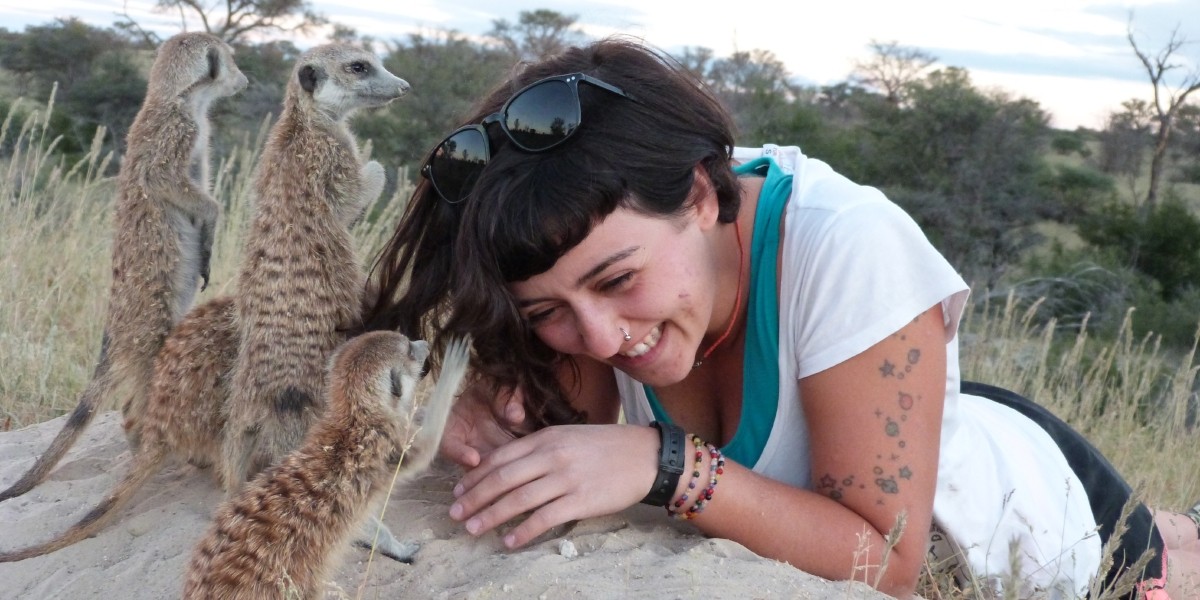Inactive user
The page you are trying to access has been deactivated because Selin Ersoy is not working for NIOZ anymore.
Go to Staff.

Research interests
I am a PhD student in the department COS under the supervision of Allert Bijleveld. I will be working with red knots on their exploratory behavior and its implications for social behaviour, life history and spatial distribution.
Project title: Short-term Causes and Long-term Consequences of Individual Adaptations to Environmental Change in Red Knots
Shorebirds in rapidly changing environments are increasingly threatened by habitat loss, overexploitation of natural resources, and climate change. In these changing environments, a fundamental understanding of organismal responses to global change and the role of individual characteristics became a core topic. Red knots (Calidris canutus) are shorebirds very well suited to study the ecological and evolutionary responses to environmental variations. This is because the species live in the most fragile and threatened habitats in the world: their breeding grounds in the Arctic are influenced by rapid warming and the coastal wintering habitats are under anthropogenic pressures during non-breeding season. Their ecology and behaviour can be studied on the individual level by marking/tagging (i.e., colour-bands and/or transmitters) birds and observing them in the wild; and by conducting behavioural experiments in a controlled setup with temporarily captured individuals.
During my PhD study, I plan to combine fieldwork on free living red knots and indoor experiments on captive red knots to investigate how individual, ontogenetic, and environmental factors influence red knot adaptation to environmental changes. Four main topics will compose the backbone of the proposed research and will be organized as self-contained sections of my PhD thesis:
1) Ontogeny of individual differences: How do individual differences in exploration emerge during development, how stable are these differences throughout lifetime, and how are they related to other phenotypic differences? How much of the individual differences are heritable and/or learned by adapting to environment?
2) Ecology of exploratory behaviour at the individual level: How does the spatiotemporal availability and variation in prey quality affect individual differences in exploration behaviour? How movements differ between individuals? Do individual birds adjust their movement patterns to the landscape-scale changes? Do exploratory behaviour predict individual foraging specialisation?
3) Ecology of exploratory behaviour at the population level: What are the implications of differences in exploration tendency for the spatial distribution of Red Knots and how does this affect the adaptive capacity of the species in times of global change? Does exploratory behaviour have an effect on survival? How does mean exploratory behaviour in a wild population of red knots change with seasonal as well as yearly changes in food availability?
4) Unifying eco-evo framework: What is the current status of research on consistent individual differences (i.e., animal personality) in adaptation to environmental changes? Can we build a theoretical model to investigate under what conditions individual differences in exploration behaviour emerge? Can we use my empirical data from the field and experiments to test theoretical predictions for individual adaptation to changing environment?
My results shall provide detailed information on the underlying mechanisms of individual responses to environmental variations. These new data combined with the existing knowledge at our institute will allow the investigation of different life-history strategies by taking into account the individual-level variation explicitly. The findings of the proposed study will increase our understanding of the ecological and evolutionary consequences of global change in socially and spatially structured species and will be of importance to biologists in the fields of behavioural ecology, movement ecology, and biodemography.
Functions
Key publications
Professional education
Awards and Prizes
Other